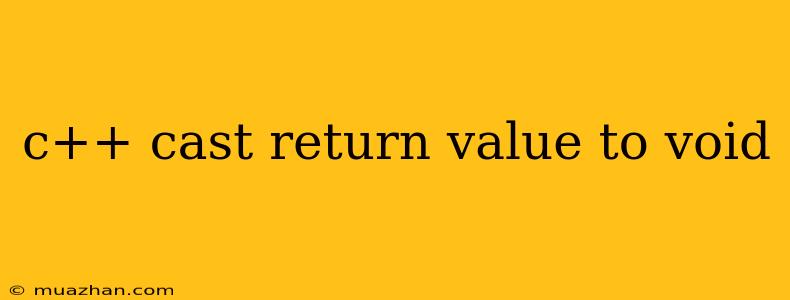Casting Return Value to void in C++
In C++, the void type represents the absence of a value. It's often used for functions that don't return anything or in scenarios where you want to explicitly ignore the result of a function call.
Casting a return value to void is generally not recommended and can be problematic.
Here's why:
- Loss of Information: By casting to
void, you're discarding the actual value returned by the function. This can lead to unexpected behavior if you later need to use that value. - Potential Errors: If the function you're casting is expected to return a meaningful value, ignoring it can mask errors or lead to incorrect program logic.
- Compiler Warnings: Most compilers will issue warnings when you attempt to cast a value to
void. This is a signal that something might be amiss in your code.
Alternatives to Casting to void:
Instead of casting, consider these approaches:
- Ignore the Return Value: If you don't need the returned value, simply ignore it. For example:
int result = myFunction(); // Call the function
// Ignore the result
- Use a Placeholder Variable: Declare a variable of the appropriate type and assign the return value to it, even if you don't use it later.
int dummyResult = myFunction(); // Store the result in a dummy variable
- Use a Function that Returns
void: If you truly don't need the result, modify the function to returnvoid.
void myFunction() {
// ...
}
Example of Potential Issues:
int addNumbers(int a, int b) {
return a + b;
}
int main() {
void(addNumbers(5, 10)); // Casting the return value to void
// The result of addNumbers(5, 10) is lost,
// and the potential for errors is introduced.
}
In Summary:
Casting a return value to void is generally a bad practice in C++. It can lead to loss of information, potential errors, and compiler warnings. Use alternatives like ignoring the return value or using a placeholder variable to handle situations where you don't need the returned value.
